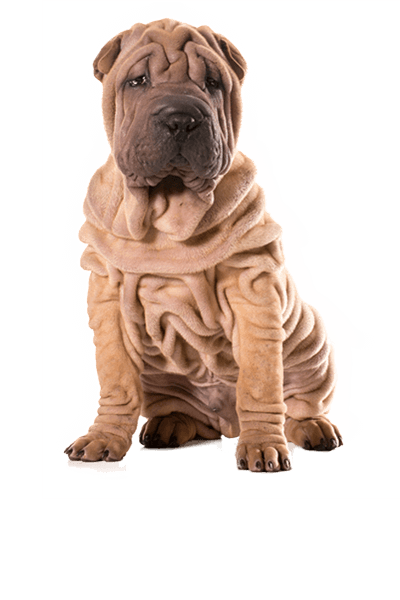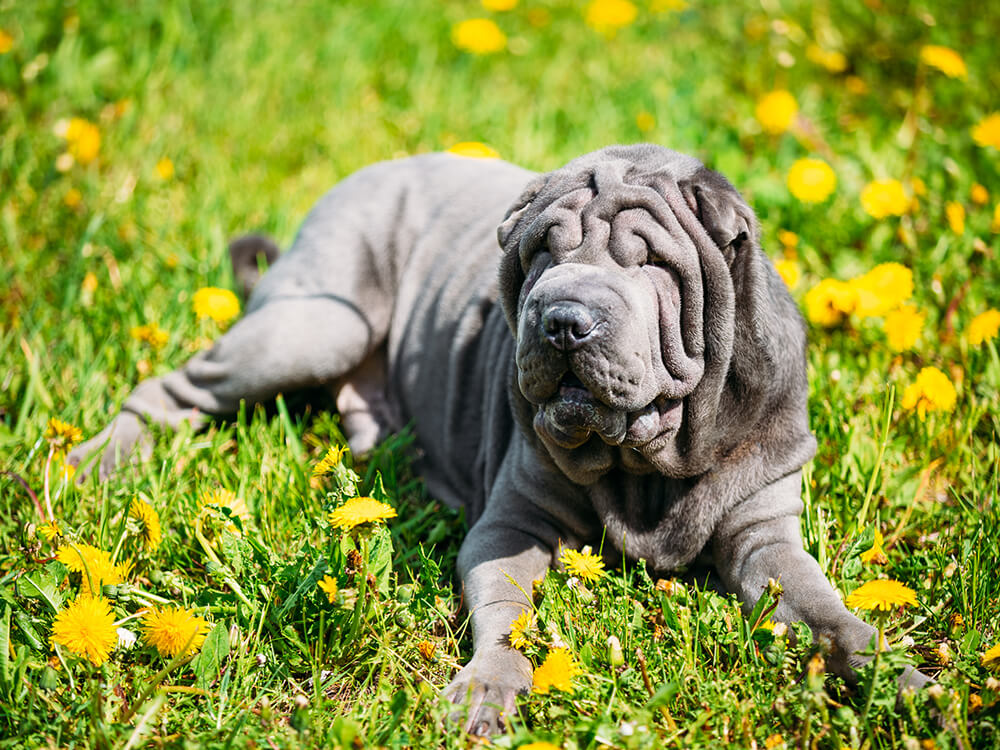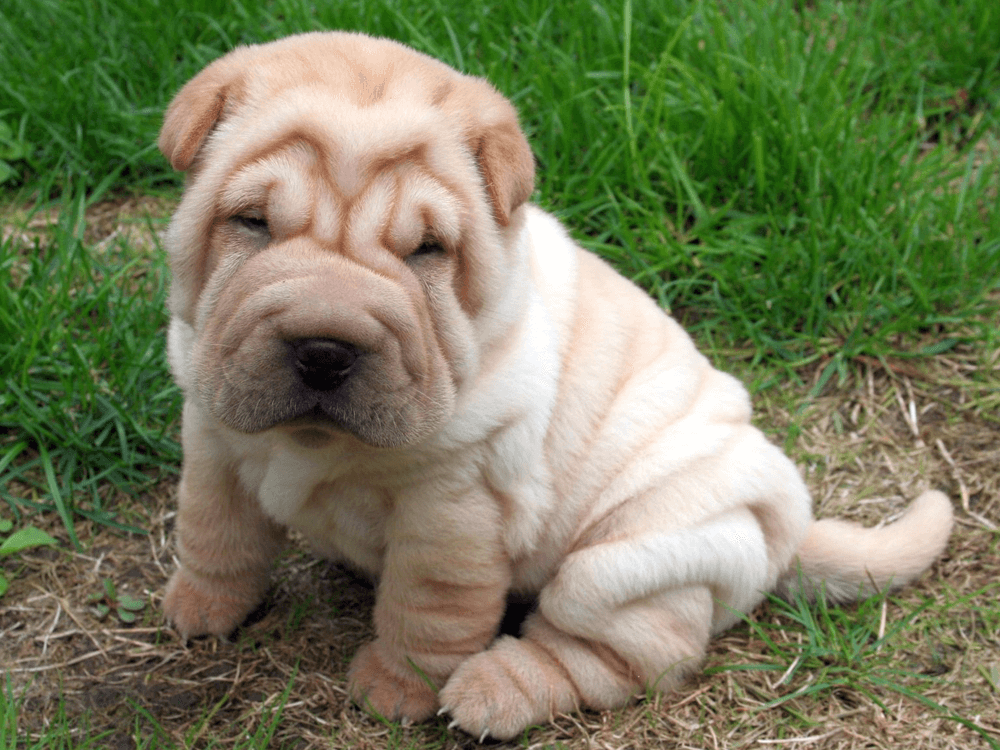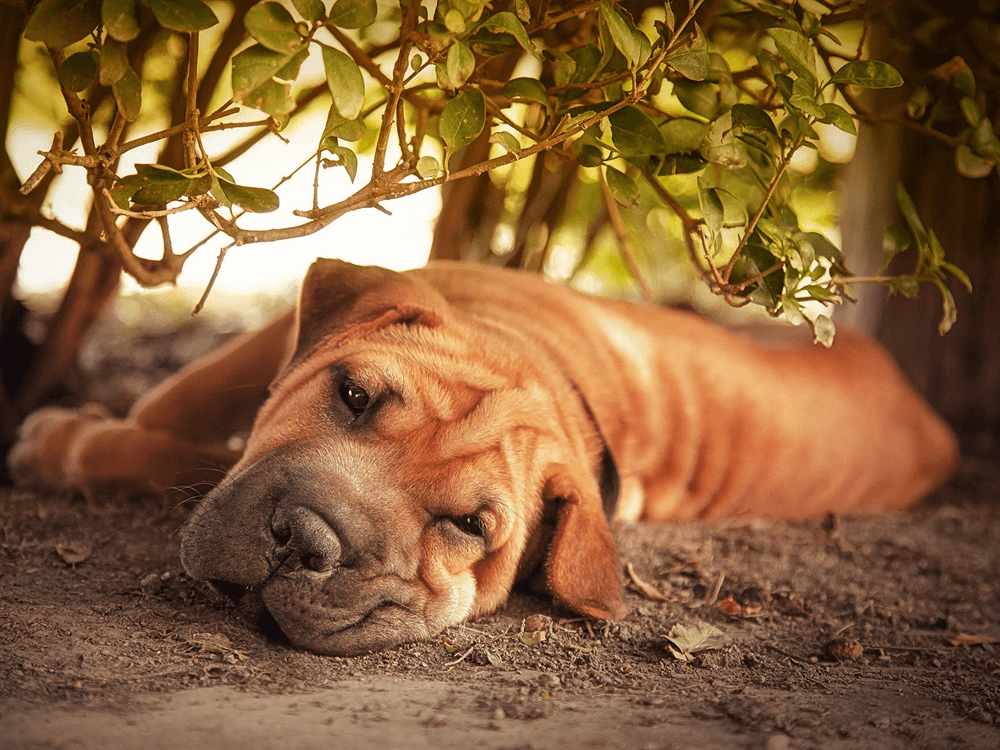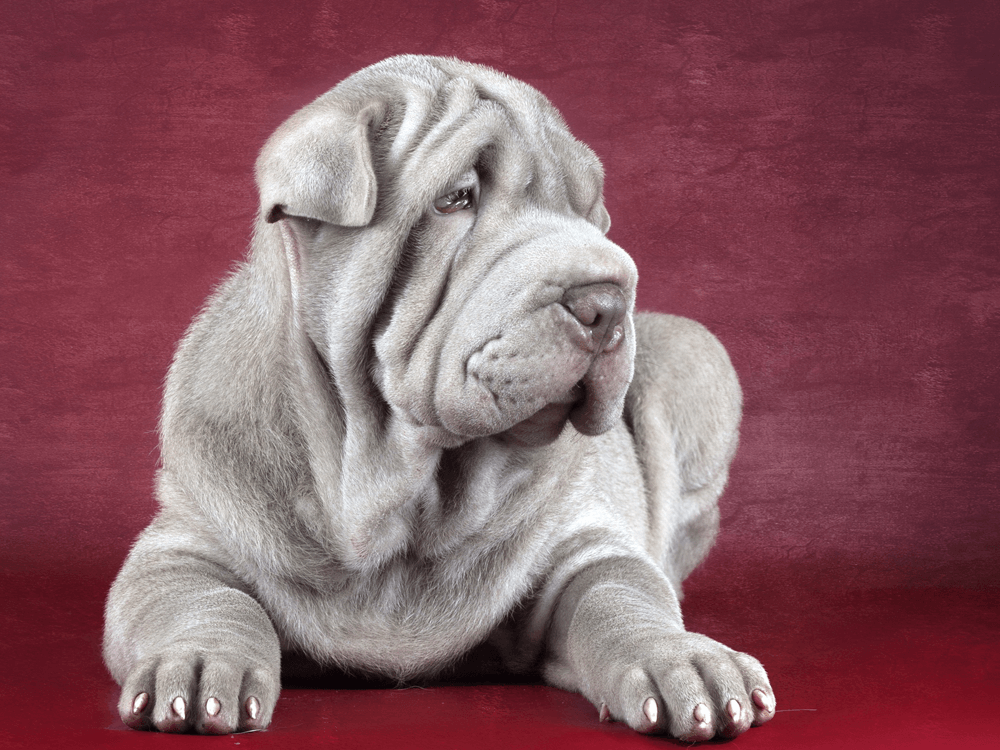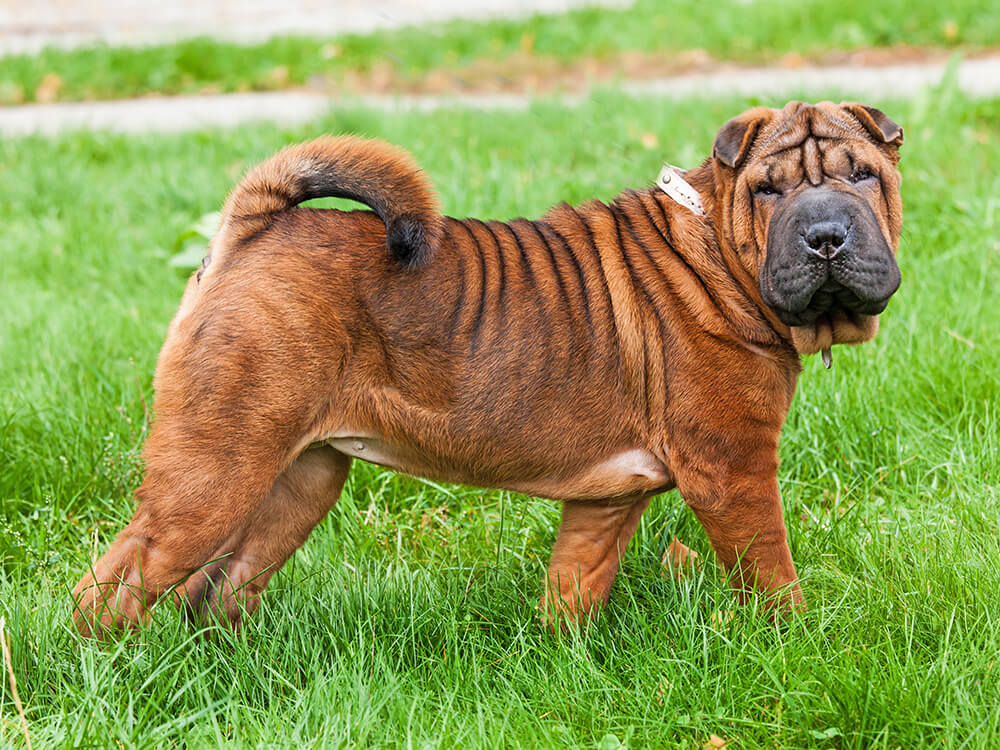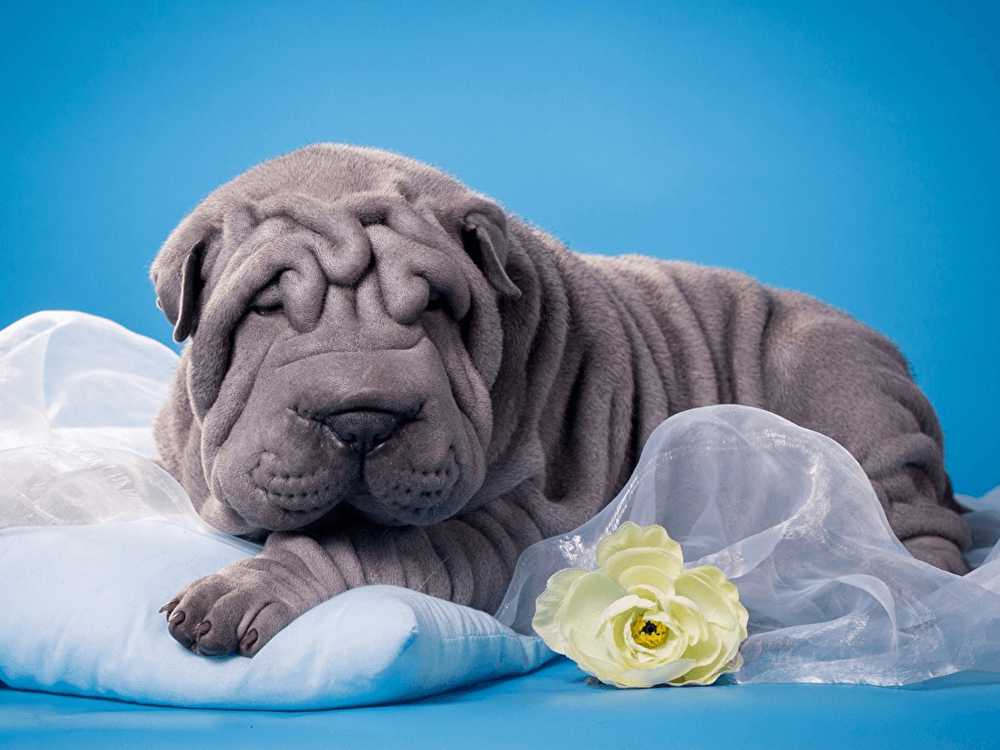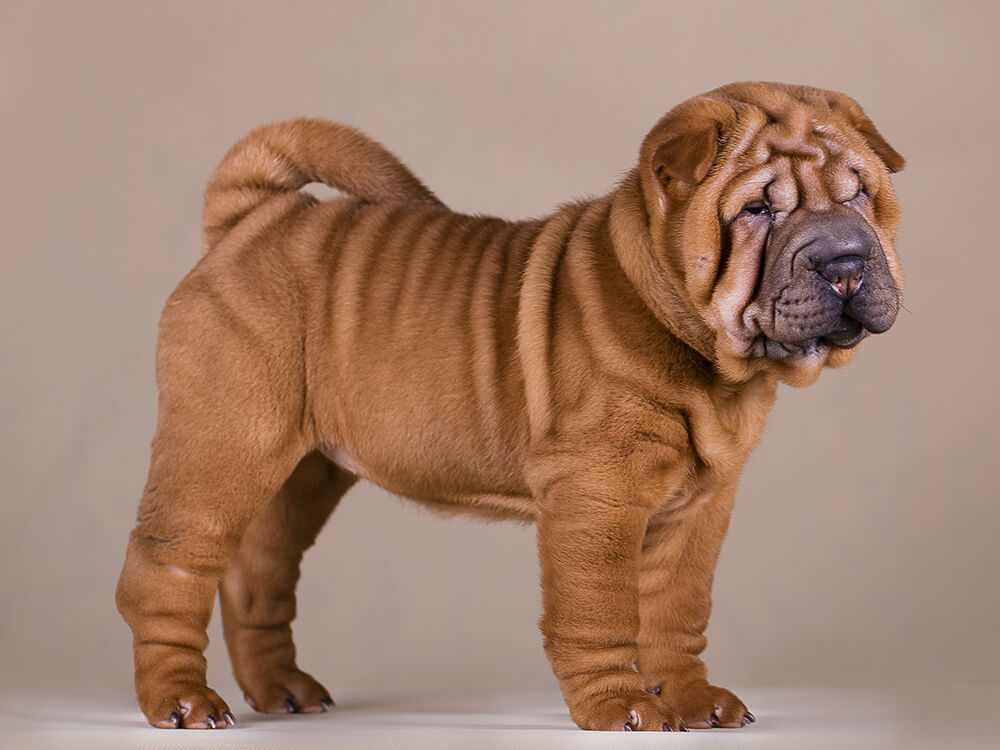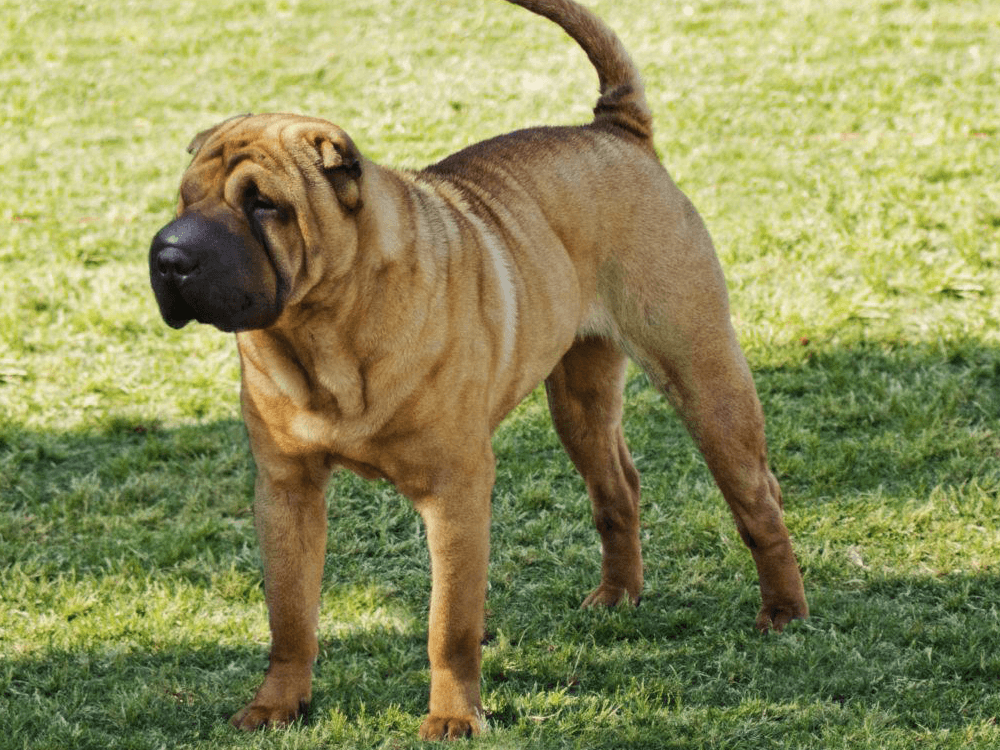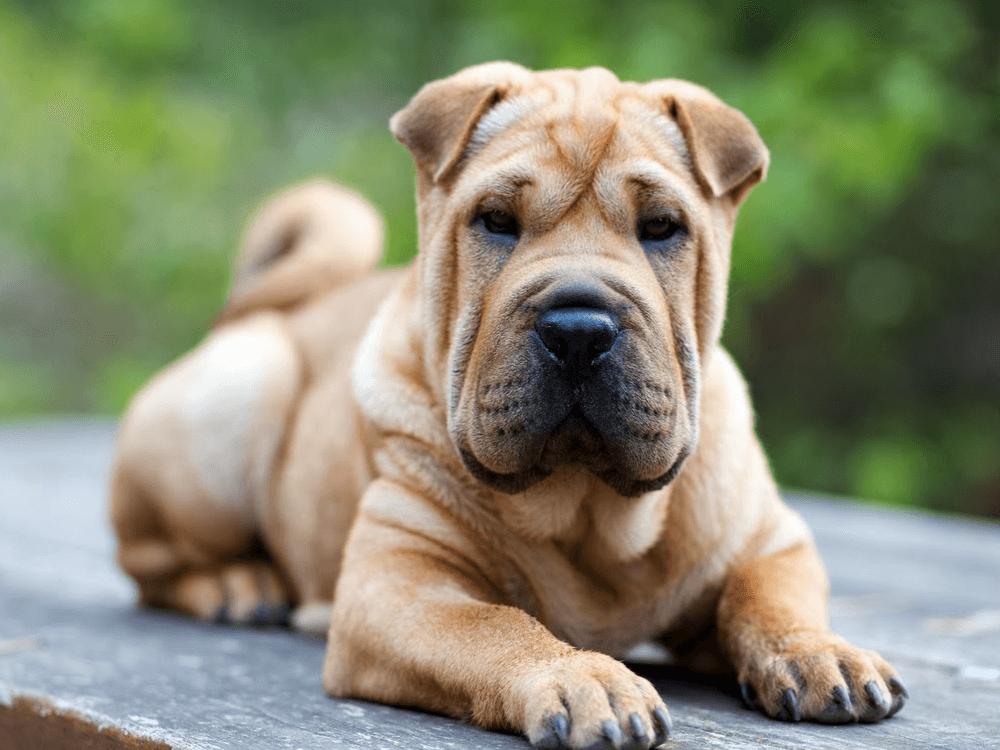
Shar Pei Breed Pictures
Vital Breed Stats
| Height: | 46 - 51 cm M | 46 - 51 cm F |
| Weight: | 46 - 51 kg M | 46 - 51 kg F |
| Breed Group: | Terrier Dog Group |
| Life Expectancy: | 7 - 10 years |
| KC Registered: | No |
Breed Characteristics
| Size: |  |
| Grooming: |  |
| Exercise Level: |  |
| Trainability: |  |
| Barking Level: |  |
| Good with Children: |  |
| Good with other pets: |  |
| Affectionate: |  |
| Protective: |  |
| Cost to Keep: |  |
Give a thumbs up if you love the Shar Pei

0
More About the Breed
History
Aside from the fact that the Shar Pei is a native of China, the breed’s origins are a mystery. Some experts believe that it is an ancient dog considered as the basal breed for modern, mostly 19th century breeds. Records and artefacts show that the Shar Pei has been around since 200 BC, during the Han Dynasty. The Shar Pei was said to have been bred as a herder, hunter, guardian and dog fighter, and quickly became a favourite of emperors.
After the People’s Republic of China was established, the Shar Pei’s numbers significantly dropped. During this time, high taxes in owning dogs were imposed, and breeding was later on banned. A breeder from Hong Kong named Matgo Law is credited for taking the breed to America in 1974, which significantly prevented the breed’s extinction. It arrived in the UK in 1981 and has become a very popular breed across the globe until this day because of its cute appearance and loyal nature. It is recognised by major registries like The Kennel Club under the Utility group.
Appearance
The Shar Pei is a distinctive dog with plenty of loose folds on its face and all over the body and bluish black tongue, making it one of the most identifiable dog breeds in the world. Weighing 40 to 55 pounds and standing 46 to 51 centimetres at the withers, this medium dog is a compact dog with a square shape. It has a large head, a flat, broad skull with a moderate stop, broad and relatively broad muzzle, and large and wide nose. It has almond-shaped eyes that show its frowning expression and small triangular ears that are set high. While the breed’s nose and eyes are typically black, lighter colours are allowed in paler shades.
The Shar Pei has a straight and off-standing extremely harsh coat, which is flatter on the limbs. It also has no undercoat. According to KC standards, all solid colours are accepted except for white.
Grooming
Since the Shar Pei has a short coat and is naturally clean with very minimal odour, it has low grooming needs. All it needs is a thorough weekly brush, which becomes more frequent during spring and summer. Its folds should also be cleaned and dried to avoid infections. It can be bathed 3 to 4 times a year since frequent baths can cause irritations to the Shar Pei.
An important aspect of its grooming routine is dental hygiene. Make sure its teeth are brushed daily, if possible, to prevent bad breath, tooth decay and gum issues. Check its ears for wax build-up as the ears can harbour infection-causing bacteria. Lastly, make sure to trim its nails when you hear clicking sounds on the floor since overgrowth can be uncomfortable.
Temperament
Intelligence
Nutrition
- Senior and less active: up to 1,170 calories daily
- Typical adults: up to 1,310 calories daily
- Physically active/working dogs: up to 1,460 calories daily
Feeding
Health
Exercise
Cost of Ownership
- Well-bred pedigree Shar Pei puppy - £700 to over £1,000
- Pet insurance - usually starts at £50
- Basic equipment - £200 (initial cost)
- Food - (£50 to £70 per month)
- Veterinary expenses - (can cost £1,200 yearly)
Shar Pei Breed Highlights
- The Shar Pei is a loyal and affectionate breed to its family.
- It is not for first-time owners because it can be independent and dominant.
- Because it is a naturally clean dog that has a short coat, grooming is a breeze.
- It is suspicious of strangers and is instinctively protective, making it a great watchdog and guard dog.
- It can be prone to a number of health issues.
